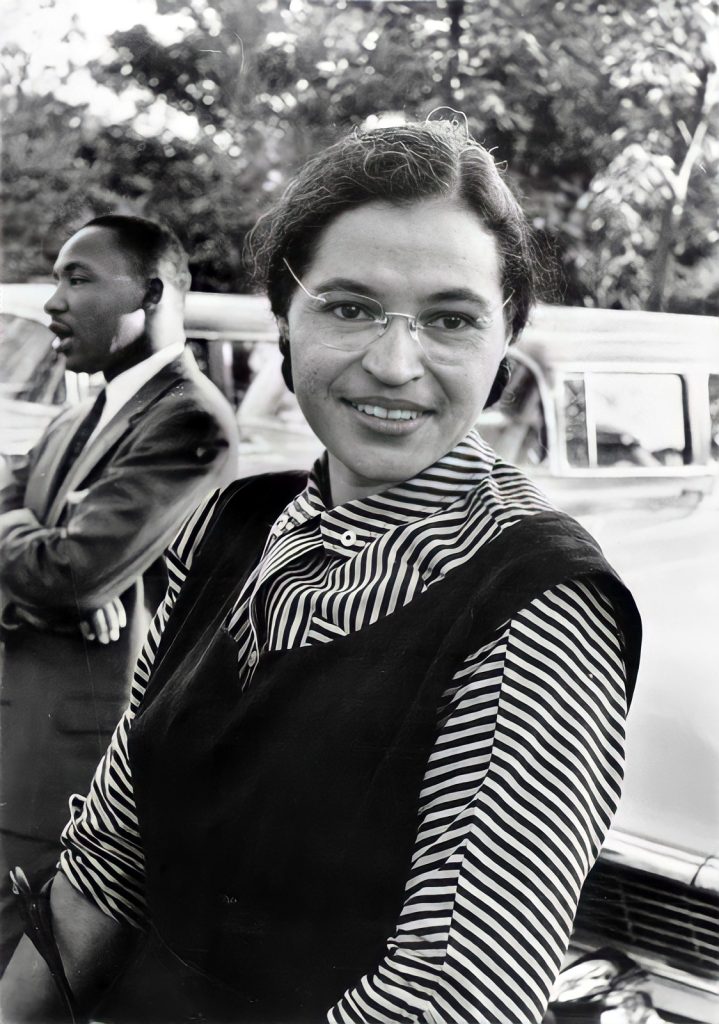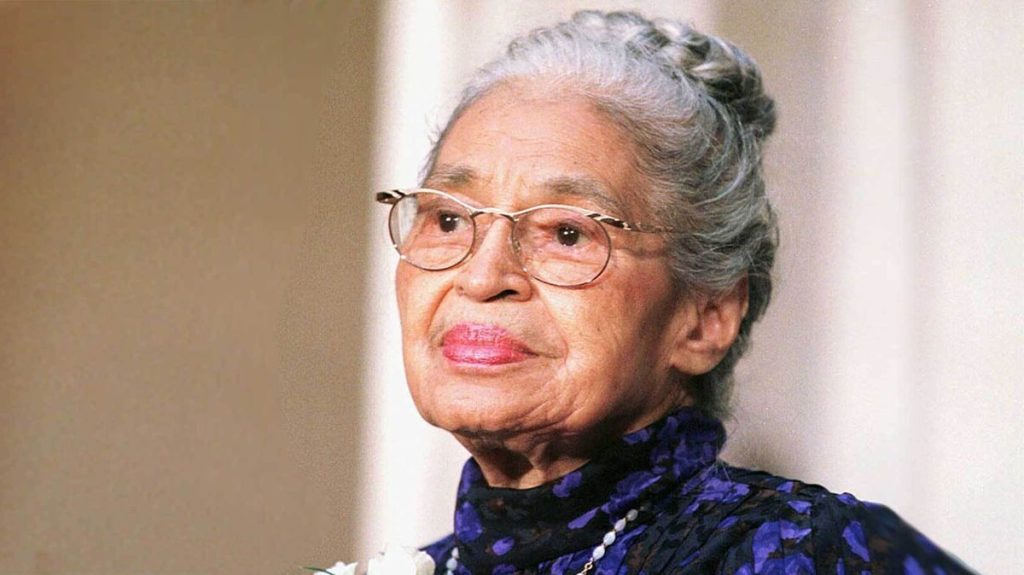The Day That Sparked a Movement
On December 1, 1955, Rosa Parks boarded a bus in Montgomery, Alabama. Instead of taking a seat in the back, where African Americans were required to sit, she chose a seat in the front.
When the bus began to fill up with white passengers, the driver ordered her to move. Rosa Parks refused.
Her quiet act of defiance became the spark that ignited one of the most powerful social movements in American history, the Montgomery Bus Boycott.
Early Life and Education
Rosa Louise McCauley was born on February 4, 1913, in Tuskegee, Alabama. As a child, she attended an industrial school for girls and later enrolled at Alabama State Teachers College for Negroes (now Alabama State University).
She was forced to withdraw from school to care for her ill grandmother, but growing up in the segregated South deeply shaped her awareness of injustice. Even as a child, Rosa faced the harsh realities of racial discrimination and violence, experiences that fueled her lifelong commitment to equality.

Marriage and Early Activism
At 19 years old, Rosa married Raymond Parks, a local barber and passionate civil rights advocate. Together, they became active in the struggle for racial justice, working alongside numerous social organizations.
Rosa eventually became the secretary of the Montgomery chapter of the NAACP (National Association for the Advancement of Colored People), solidifying her role as an organizer and community leader.
The Moment of Courage
By the time Rosa boarded that Montgomery bus in 1955, she was far from being just a weary seamstress. She was a seasoned activist, well aware of the risks.
When people later claimed she refused to give up her seat because she was tired, Rosa clarified her true reason:
“People always say that I didn’t give up my seat because I was tired, but that isn’t true. I was not tired physically… The only tired I was, was tired of giving in”.
Her arrest for civil disobedience sparked a 381-day boycott of Montgomery’s buses, led by young pastor Dr. Martin Luther King Jr., which ultimately resulted in the desegregation of public transportation.
Life After the Boycott
Rosa’s brave act came at a cost. She was jailed and later lost her job for participating in the boycott. Facing continued harassment, Rosa and her husband relocated, first to Hampton, Virginia, and later to Detroit, Michigan.
In Detroit, she continued her activism, working tirelessly with civil rights organizations to combat inequality and injustice in urban communities.
By the 1980s, despite her historic contributions, Rosa faced financial and health struggles. When she was nearly evicted from her home, the community she had inspired came together to support her, a testament to the impact she had made.

A Legacy That Lives On
Rosa Parks passed away on October 24, 2005, at the age of 92. Her life remains a symbol of quiet strength, dignity, and courage in the face of injustice.
Her refusal to give up a seat became a turning point in American history, a reminder that one person’s act of conscience can change the world.